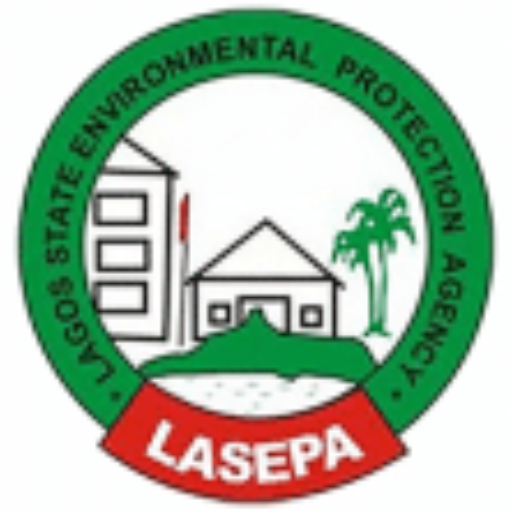
Get in touch
Use this contact page to report what appears to you as a possible violation of environmental laws and regulations. Information you submit will be forwarded to LASEPA environmental enforcement personnel or to the appropriate regulatory authority. Please provide as much information as you can.
Need Help?
Proactively fashion world-class leadership vis-a-vis enterprise e-services. Great strong leadership.
What does LASEPA do?
Offices

Head Office
Lasepa Building, Governor’s Road, The Secretariat, Alausa, Ikeja, Lagos State
Alimosho Zonal Office I and II
Location: 277, Egbeda-Idimu Road, Pipeline bus stop, opposite Area M Police Command, Lagos.
Agege Zonal Office
Location: Abattior Complex, Oko Oba, Agege, Lagos.
Contact: 09045243432
Badagry Zonal Office
Location: Public Works Yard, along General Hospital Road, Badagry, Lagos.
Contact: 09088011003
Ikorodu Zonal Offices I and II
Location: 1, Odogunyan Industrial Estate, Opposite Lami Gas, off Falcon Gas, Odogunyan,Ikorodu, Lagos.
Orile-Iganmu Zonal Office,
Lekki Zonal Office
Contact: 09088091001
Epe Zonal Office
Location: Block B, House 19b, Alani Akinrinde Street, Abraham Adesanya Estate, Lagos.
Isolo Zonal Office
Location: Isolo Local Government secretariate, Osolo way, Isolo, Lagos.
Amuwo Zonal Office I and II
Location: 12, Alhaji Wasiu Ogunlana Street, off Ago Palace Way, Amuwo-Odofin, Lagos.
Contact: 09088097003, 0908097004
FAQs
What is Environmental Protection?
Environmental Protection is a practice of protecting the environment on individual, organizational or governmental level, for the benefit of the natural environment and humans. This means taking an action or a relinquishment from an action that facilitates preservation or restoration of ecosystem natural balance
What is Pollution?
Pollution is an undesirable state of the natural environment being contaminated with harmful substances as a consequence of human activities; the contamination can be either intentionally or accidentally. Pollution is also introduction of contaminants into an environment that causes instability, disorder, harm or discomfort to the ecosystem.
What are the Environmental Requirements for New Industry coming up in the State?
An Environmental Impact Assessment (EIA) is required before any industry comes on stream in the State. Also, an EIA is required on any development activities including but limited to infrastructure, transportation, agriculture, general construction and service, health, mining, energy, tourism.
What is Environmental Impact Assessment (EIA)?
EIA is a planning and making decision tool, applied to a proposed undertaking (i.e. any activity, project implementation, or development of which may have significant impact on the environment)
What does EIA involve generally?
EIA involves the gathering and analysis of all relevant information on a proposed undertaking to determine the likely consequences of the undertaking implemented in a given area, and if it should . . . . What appropriate mitigation or alternative must be considered in order to ensure environmentally sound and sustainable implementation or development.
How do i Register an EIA?
i. Obtain a Registration Form from the Agency
ii. Complete (in duplicates) and submit the Registration Form to the Agency.
Who are the Key Actors in EIA of a project proposed?
i. The project proponent (i.e. the owner)
ii. Environmental Protection Agency
iii. Relevant Municipals
iv. Relevant Ministries and Departments
v. Communities affected by the project
vi. Other stakeholders (interested parties)
Does my proposal require EIA?
i. Yes, if the project is included in the EIA Mandatory List.
ii. No, if the project is not in the Mandatory List.
Screening Advice
The advice could be one of the following:
i. Objection to proposal (i.e. cannot proceed);
ii. No-Objection (i.e. proposal may proceed);
iii. Preliminary Environmental Assessment (PEA) required;
iv. EIA required
What is a Preliminary Environmental Assessment (PEA)?
PEA is required for moderation significant impact undertaking to provide adequate information on the project as the basis for decision making.
When is it required to submit an EIA?
i. When the Agency after considering an application decides that the proposed undertaking is likely to have severe negative effects on the environment.
ii. For undertakings listed in Category I
iii. For those sited in the areas that are considered to be environmentally sensitive
When is Scoping Report required?
Scoping is the first exercise to be carried out to determine the main issues to be addressed in EIA Study. The Scoping exercise leads to the preparation of Terms of Reference (ToR) which serves as guide for the EIA. The ToR must be agreed upon between the Agency and the proponent.
What happens to the Environment Report submitted?
The EIAs submitted are reviewed by the Agency in collaboration with relevant Ministries and government Agencies.
For EIAs, a 21-day public notice (newspaper publication) is served to invite contributing comments. Public hearing is held as part of the review process where:
i. There are strong public concerns on the undertaking;
ii. It involves settlement of communities, utilities or diversion of river/stream;
iii. The Agency considers that the undertaking could have extensive and far reaching consequences on the environment.
Environmental Permit.
An Environmental Permit (EP) must be obtained in order to commence or implement an undertaking. The Environmental Permit (EP) is an evidence of compliance with Environmental Assessment Regulations.
Fees
The Agency charges review fee/ administrative charges on technical documents (EIA, EA, EAR, PIA,EMP, e.t.c) being submitted to the Agency.
Industrial Monitoring
Industries in the State are visited at least twice in a year for an assessment of the compliance status with regards to environmental regulations and standards.
